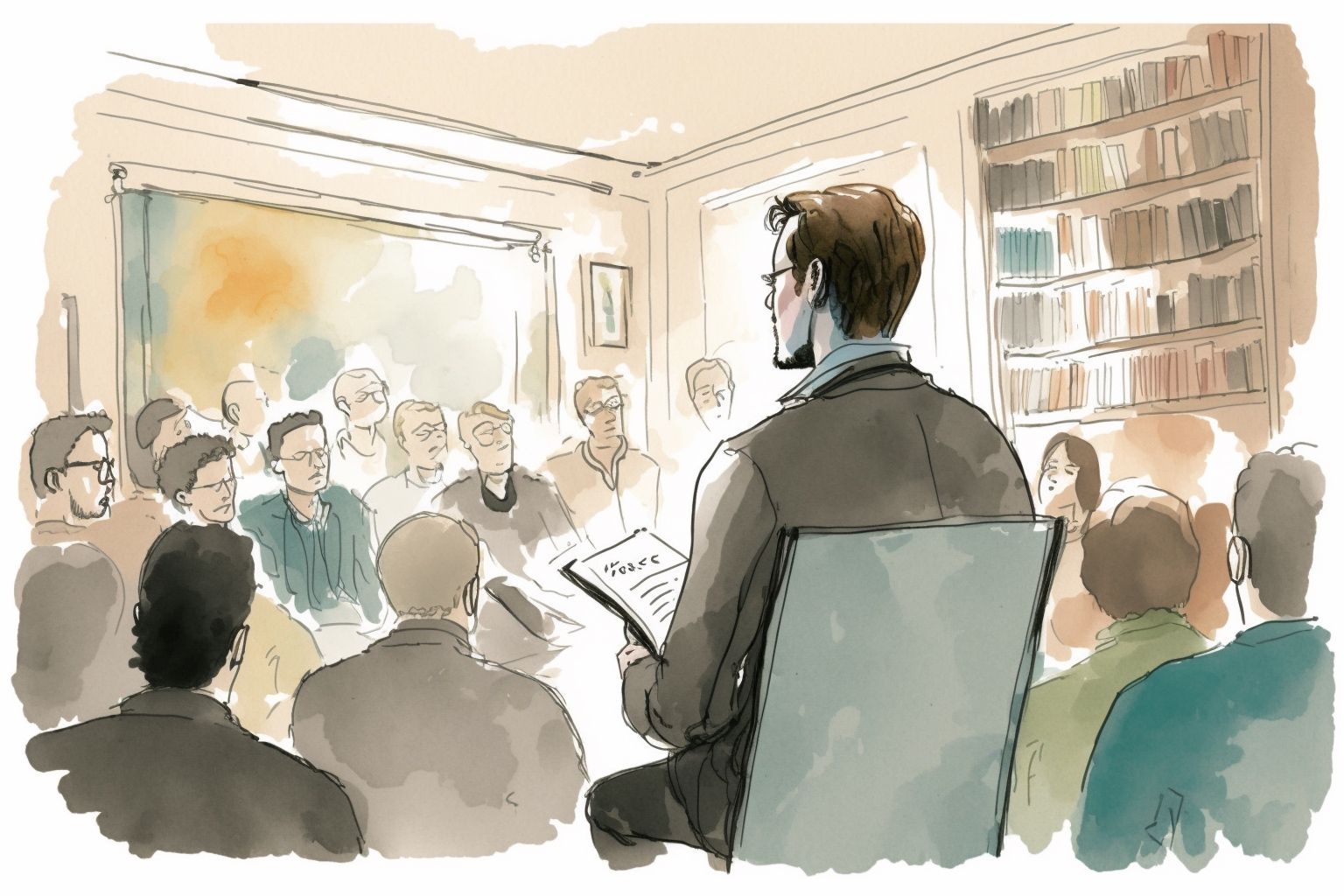How To Calm The Inner Narrative

Scroll to the bottom of this page for links to the audio and podcast.
This is a transcript of the talk from the class
About the Inner Narrative and the Myth of Mind Control
Okay, so today the topic is calming the inner narrative. Now, it's not like it's always necessary to calm the inner narrative, but trust me, if you don't learn to calm it at some point you'll wish you had. Having the power to calm your mind is, especially for the inner narrative, a pretty powerful thing. And I think it's one of the main reasons people start getting into meditation. That was definitely the case for me. I wanted to achieve that zen-like calm. Now, I consider myself a pretty experienced meditator, especially compared to the average person in the UK, but even the most experienced meditators I know don't say that they have zen-like mind control.
How the Inner Narrative Becomes So Powerful
So the biggest benefit of mindfulness meditation is definitely becoming more comfortable with your own mind and specifically becoming more comfortable with the inner narrative. Now, the inner narrative can be repetitive and persistent. It doesn't really matter if it's helpful or unhelpful or neutral from the perspective of meditation, what matters is its intensity. And we care about the intensity of the inner narrative because it's the most intense experience that grabs our attention. And because of the repetitive nature of the narrative, that intense experience can stay with us for a long time. This is because intense experiences get stored in the brain as memories through a process called long-term potentiation. The more intense the experience, the more accessible the memory becomes. That makes sense, right? If we encounter a dangerous situation, it's important for that information to stay with us so we can avoid it in the future. So those intense experiences stay with us for our entire lives and they continue taking our attention. And that's what leads to rumination, which is just another way of saying a repetitive inner narrative. If the focus of the mind keeps going back to intense experiences from the past or worries about the future, it can compete easily with the neutral experiences that are happening in the present moment. So then, because we're so focused on the inner narrative, our body goes on autopilot and we find ourselves stuck in a mind loop.
The Overwhelming Stimulus in the Modern World
Living in the modern world is already intense enough. I’ve said this a number of times. Just walking from one end of a busy street like Bromley High Street to the other, you're likely to encounter more people in your walk than many of our ancestors would've in their entire lives. And for a social animal like us, with a sophisticated system of identifying threats from other humans, that experience can be overwhelming. You know, it's not uncommon to meet people who don't like crowds.
There are many conditions that psychologists and psychiatrists identify as disorders, which it seems are a result of people struggling with the excessive stimuli of modern life and developing a response to it that, you know, the modern world sees as a disorder. Now, most people don't experience the overwhelm that comes with excessive stimulation. What happens is they absorb it, and they get used to it. And getting used to something has got a name, it's called 'habituation'. And so you can get used to experiences that were intense when you first encountered them and maybe even overwhelming, but then they just become part of the new normal. This is what technology does. Basically, when you first encounter a new technology, it can be overwhelming and then before long, you are just dealing with it as part of your day.
How an Overwhelming Level of Stimulus Affects Our Lives
So our inner experience can easily become a rotating list of intense, overwhelming, shocking, or frightening experiences from the past, and that we've constructed as scenarios in the mind, and they're all competing for our attention. These intense memories or fears easily compete with our present moment experience. And that leads to a society that's always looking for more intense distractions, escapism, comfort, and pleasure, largely to escape their own minds. If you don't think this applies to you, it's easy to test. See how long you can spend without distracting yourself from your inner experience. So the problem with all of the external distractions being used to help us cope with an unhelpful inner narrative is that external experiences habituate, and we get used to everything we do. It becomes less intense. So to keep using present-moment experiences as distractions, they have to be more intense. And then you see how it comes about. We have to have newer cars, newer kitchens, more exotic holidays, and more of everything to get the same level of distraction.
Our Minds Respond Differently to How We Respond to the External World
The other side of the coin is in the mind, but the problem is that habituation doesn't work the same way in our minds. If it did, we'd worry less as we worried more and longer. So now the purpose of meditation is to become familiar and comfortable with the mind, but we don't just sit down and say to ourselves, okay, today I'm gonna become familiar and comfortable with my mind. What we actually do is focus on the breath or sound or our physiology or a single point of any sort of awareness experience. And with practice, we become skilled in focusing our attention. And the narrative becomes a background experience.
Meditation and the Inner Narrative
It doesn't go away. It's very important to recognize that. And this isn't an internal distraction. It can be, but that's not sustainable in the long term. Instead, it is literally becoming familiar and comfortable with the nature of the mind. So over time, the intensity of the narrative will diminish if we meditate with true mental practice meditation. And we can also learn to become more deeply immersed in what were previously neutral experiences of the present moment. This is the key. It isn't about necessarily a connection to our inner experiences. It's about using that to reconnect to our external experiences. And then that brings the neutral present moment to life in a way that makes it fulfilling. And the intensity of the experience of noticing and being aware of the present moment elevates it. It becomes more intensive, more intense, and more fulfilling.
So we're not creating a competition between the focus of our awareness and the pull of the mind, because if we do that, we'll get the opposite effect from what we want. What we do instead is focus on things like the breath in the nostrils and the belly, connecting to the body, connecting to the present moment and to sound, opening our awareness, meditating in nature, and immersing ourselves in the experience of nature, meditating as a group and immersing ourselves in the experience of connecting with the group. All of these things have a profound effect on elevating the experience of the present moment until it becomes a place we can focus on. And the incessant, repetitive, persistent chatter of the mind becomes like the hubbub in a coffee house.
Listen to the Class Podcast or Recording
Listen on your favourite Podcast App






Comments ()